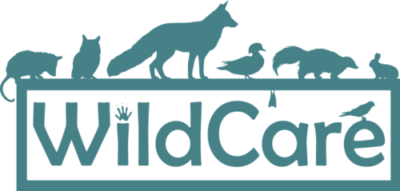Found an animal? What to Do Now…
| DO: | DO NOT: |
| Keep the animal where it is if you can. | DO NOT pick up an animal with bare hands. Instead try to use gloves. |
| Keep the animal in a warm, quiet area, preferably in a box with towels. | DO NOT remove the animal from the area needlessly. |
| Observe the animal (without touching) for any injuries or broken bones. | DO NOT feed the animal, or give the animal medicine. |
| Call us at (812) 323-1313. | DO NOT keep the animal as a pet. |
Does the animal you found really need your help?
 About half of the animals brought to a rehabilitator should have been left alone. Wild animals are great parents; their young are always better off with them. Please read more on the animal you have found before handling it.
About half of the animals brought to a rehabilitator should have been left alone. Wild animals are great parents; their young are always better off with them. Please read more on the animal you have found before handling it.
It is illegal to keep a wild animal native to Indiana without a permit for any reason. Nearly all native wild animals in Indiana are protected under state and federal laws. The dietary needs for animals are different and duplicating these is very difficult without specific training. Please do NOT feed any wild animal cow’s milk. The lactose in cow’s milk will kill most infant wild animals. Many animals brought to WildCare have been further harmed by improper captive care.
 In addition, animals may carry diseases and/or parasites. Some of these may cause brain damage, or even death in humans. Simply because an animal looks healthy doesn’t mean that it is disease and parasite free. Please put your pets inside if you believe you have found an abandoned or injured wild animal.
In addition, animals may carry diseases and/or parasites. Some of these may cause brain damage, or even death in humans. Simply because an animal looks healthy doesn’t mean that it is disease and parasite free. Please put your pets inside if you believe you have found an abandoned or injured wild animal.
While it is NOT true that animals will reject caring for their young if they’ve been handled by humans, handling should be kept to a minimum as it is stressful for the animal. Do NOT pick up a wild animal with your bare hands. There are a variety of ways to rescue an injured or orphaned wild animal. The most effective with least contact are to:
 * Place a pillow case or T-shirt over the animal, and, wearing gloves, place into a box with holes for air,
* Place a pillow case or T-shirt over the animal, and, wearing gloves, place into a box with holes for air,
* use a magazine or newspaper to slide under the animal, and, wearing gloves, while placing a box or basket on top.
Place the animal in a warm, quiet, and confined area. You should use tissues, paper towels, T-shirts, or pillow cases to help the animal stay warm. You may use a heating pad on low but be sure to keep half of the box off of the pad to provide a cool side. You should NOT feed or water the animal. Ingesting the wrong food may cause death.
Our pets have lots of bacteria in their mouths that can kill many wild animals quickly. If you have found an animal your pet caught please contact a rehabilitator quickly for animal care.
WildCare does not accept deer, raccoons, skunks, or coyotes and while we offer advice, we do not remove nuisance wildlife.
More information for specific animals:








